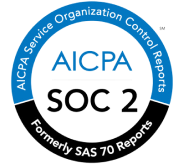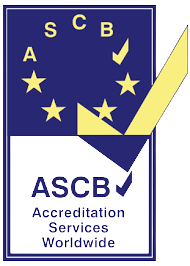Table of Content
Introduction
Skills-based hiring approach is the procedure when recruiters hire a candidate based on their skill sets. The educational background, experience gaps, gender, location, and total years of experience will not matter much. It all boils down to how many skills the current candidate has and how much these skills are useful for sustaining the job for the next tenure.
Candidates put their focus on continuously learning new skills, and this will be the next wave of talent acquisition strategies in 2024. Recruiters are using the CV Parser and ATS tools to know if the resumes they receive have the right keywords for the skills or not.
To know more in detail about a skills-based hiring strategy and approach, read the blog below. For a recruiter like you, this post will be quite helpful.
Also read: 6 Top Talent Management Practices
Want to skip this content?

How do you formulate a skills-based hiring strategy?
Skills-based hiring sounds like a new buzzword in the HR realm. However, it puts recruiters into fixing to formulate new strategies, those who are unaware of the next-gen tech and tools like uKnowva.
If you’re one of those recruiters, consider the steps below:
- Generate a draft of the job description based on skills
You need an upgraded version of pre-existing jobs. However, you might not have the experience of these job roles or skill sets. But when you use AI Suggest, you can be on the top of your game.
This tool allows you to generate the job description based on the top skill sets of various job roles and categories within seconds.
You can make bias-free and only skills-based hiring decisions when you use such tools. This will speed up your hiring process by 2x to 10x in a day.
- Know about the latest skills which you must hire for
A job description is not enough. You need a checklist of the top skills that you must find in the CV for the next step. You can again use AI Suggest to fetch the top 5-10 skills. It generates a checklist of top and new-era skills within seconds.
This saves you time, which you otherwise waste on searching online or following up with the requisition manager.
- Leverage the availability of the CV Parser to remove unconscious bias
As a recruiter, to build a skills-based hiring approach, you need to focus more on skills. However, when you are hiring in bulk, receiving 100s of resumes in a day or a week can be challenging.
You do not have enough time to skim through the content of all the profiles. However, investing in a CV Parser speeds up your profiling skills. You can shortlist and cut through the pyramid of resumes within seconds.
A CV Parser allows you to put in keywords or key phrases. These keywords sift through a myriad of resumes on your behalf. So you do not have to manually read and shortlist the resume anymore.
Once you get a resume filtered from the CV Parser, you are a step ahead to lock the interview. Then, you can start taking personal interviews without having to put in manual efforts in the first place. It saves you a ton of mental and emotional labour, which you can invest later to build rapport with top-notch candidates.
- Integrate relevant job portals with the career page
Hundreds or thousands of job portals are there, specific to the need or type of candidate you are looking for. Some portals are best for senior and lateral candidates based on their next-gen skills and experience.
Other portals allow you to find the right talent for fresher jobs and skills to train later, if your organisation has an established eLMS function. If not, your organisation can always implement uKnowva for that.
Moving forward, you can integrate such job portals with your organisation’s career page. This helps you collect all the resumes in the candidate or talent pool database or menu of uKnowva’s portal.
This step again saves your manual effort, previously invested time, and emotional labour.
- Make skills-based hiring more effective with analytics
You need to know if your current skills-based hiring strategies are effective. Delve deeper into recruitment engine insights from the backend which uKnowva provides in its core HRMS.
Read the cost-to-hire rate, job portal efficiency, top skill-based hires you have onboarded, etc., data at your fingertips. Know if you’re efficiently making use of pre-approved budgets.
Check if the past hires are still retained and highly performing or not. That way, you can make intelligent, cost-effective, and more skills-based hiring decisions in the future.
Conclusion
We have read about the skills-based hiring process above. If you’re a recruiter, start initiating this plan right away and improve your hiring TAT. Invest in uKnowva to make it happen smartly with the AI and automated technologies we offer in our suite.
FAQs on Skills-Based Hiring
Q: How does skills-based hiring differ from traditional hiring methods?
A: Unlike traditional hiring, which often relies on resumes and qualifications, skills-based hiring evaluates candidates based on their demonstrated skills and practical abilities, providing a more accurate reflection of their potential contribution to the role.
Q: Why is skills-based hiring important?
A: Skills-based hiring helps companies find candidates who possess the exact skills required for a particular job, leading to better job performance, increased employee satisfaction, and a more efficient hiring process.
Q: How can employers identify and assess specific skills during the hiring process?
A: Employers can use a variety of methods, including skills assessments, practical tasks, and behavioural interviews, to evaluate a candidate's abilities and determine if they align with the job requirements.
Q: Does skills-based hiring ignore qualifications and education entirely?
A: While qualifications and education may still be considered, skills-based hiring places greater emphasis on a candidate's practical skills and competencies. It allows individuals with diverse backgrounds to showcase their abilities, even if they don't have a traditional educational path.
Q: How can a candidate prepare for a skills-based interview?
A: Candidates should thoroughly review the job requirements and be ready to provide specific examples of how their skills and experiences align with the role. Practising behavioural interview questions and showcasing relevant achievements can also be beneficial.
Q: Can skills-based hiring benefit diversity and inclusion efforts?
A: Yes, skills-based hiring can contribute to diversity and inclusion by reducing biases associated with traditional hiring methods. Focusing on skills allows a more diverse pool of candidates to be considered based on their abilities rather than factors such as gender, ethnicity, or educational background.












